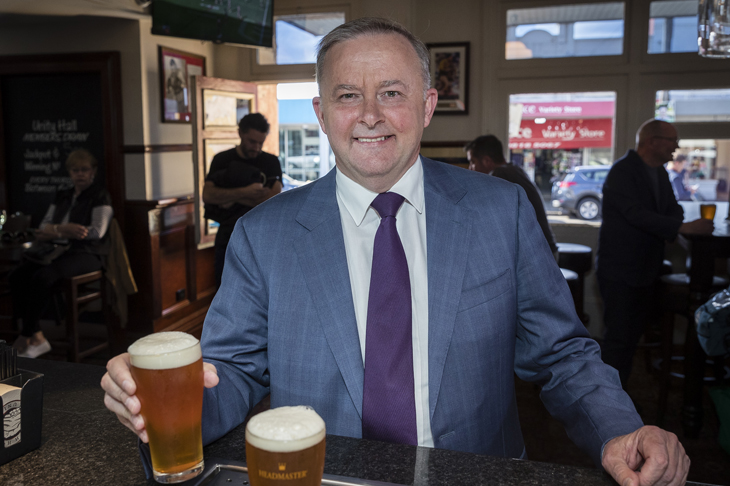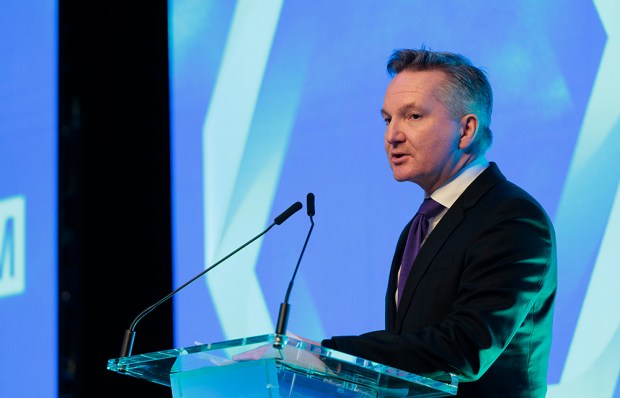A real political crisis? Or just some local manifestations of the West’s worldwide collapse of rusted-on party loyalty that is simply part of the colourful evolution of the democratic process? If there is a crisis in Australian politics, it is temporarily being submerged by the combination of Liberal euphoria at narrowly avoiding a pollster-inspired political execution last month and the shell-shocked ALP’s search for who to blame for their success in proving that any ‘unlosable’ election John Hewson can lose, they can lose worse.
Even a casual look at last month’s federal election statistics reveals outcomes that confirm the decline of the old political regimen. For example, a Victorian Green, a Tasmanian Independent, an ALP front-bencher and four National party room members – but not one Liberal – are now the occupants of the seven safest seats in Australia with a margin of 70 per cent or more. All but one of them enjoyed positive swings ranging from 2 per cent to more than six per cent. The three Liberals who used to relax in such numerical comfort have been booted out by Andrew Wilkie with a 72 per cent vote, Adam Bandt with 71.8 per rcent and with the National’s David Littleproud topping the list with 72.5 per cent. It is a tribute to Prime Minister Scott Morrison’s campaigning skills that the eighth safest seat is his, Cook, with a 3.63 per cent swing lifting his majority to 69 per cent. At the other end of the scale, Labor now has twice as many seats with majorities under two percent as the Coalition.
Spare a thought for new Opposition Leader Anthony Albanese whose Grayndler electorate has come under such effective attack from the Greens since his halcyon days of a 70.34 per cent margin, that his primary vote is now only barely 50 per cent, and needs Liberal preferences to give him a respectable majority. Another Labor seat, Scullin, from the socialist republic of Victoria, has replaced Albo. This reflects reality; despite Victoria failing to deliver the trouncing that was expected for the Liberals, Labor did gather a 1.3 per cent gain, lifting its two-party preferred majority to 53.1 per cent and increasing its Victorian seats by three to 21 against the Coalition’s 15. But in keeping with the trend of voters abandoning their locked-in party loyalties, Labor, as usual, needed second preferences (especially from the Greens) to offset a primary vote in Victoria that was even 1.7 per cent below the Liberal’s dismal 38.6 per cent. But how the mighty have fallen; gone from the list of Victorian true-blue Liberal seats that did not rely on others’ preferences are Kooyong, Flinders and Higgins, leaving only Aston, Goldstein, Menzies and Wannon as the four remnants of the first preference brigade.
In every state, many more Australians continue to vote for the Coalition as their first preference than for Labor, whose national first preference vote fell 1.4 per cent to only 33.3 per cent, well under the Coalition’s 41.4 per cent. So while only 14 of Labor’s 68 current House of Reps seats were won on first preferences alone, 29 of the Coalition’s 77 seats needed no preferences from other parties.
The Coalition’s success in lessening its reliance on minor party preferences was evident in NSW where the Coalition’s 14 first preference wins were almost three times Labor’s five. However, the proliferation of right-wing minor parties in Queensland meant that only four of the 23 Coalition seats won there were on first preferences and not one of Labor’s six wins. Preferences also enabled several Queensland seats where the LNP vote was down in the 30s to get across the line.
But will these providers of preferences still be around by the 2022 election? It is yet to be seen whether the right-wing alternatives that blossomed during the Turnbull regime will fade under a re-elected Morrison government, or whether disenchantment with the major parties is irreversible. An early indication of whether the Liberal party listens to voters rather than bows to factional war-lords, will come with the selection of a replacement for Senator Arthur Sinodinos (an ideal choice for Ambassador to the US). There are over 130,000 record-breaking reasons – his below-the-line personal votes – why Senator Jim Molan, whose term expires next month, should fill that vacancy.
Got something to add? Join the discussion and comment below.
Get 10 issues for just $10
Subscribe to The Spectator Australia today for the next 10 magazine issues, plus full online access, for just $10.
You might disagree with half of it, but you’ll enjoy reading all of it. Try your first month for free, then just $2 a week for the remainder of your first year.














Comments
Don't miss out
Join the conversation with other Spectator Australia readers. Subscribe to leave a comment.
SUBSCRIBEAlready a subscriber? Log in